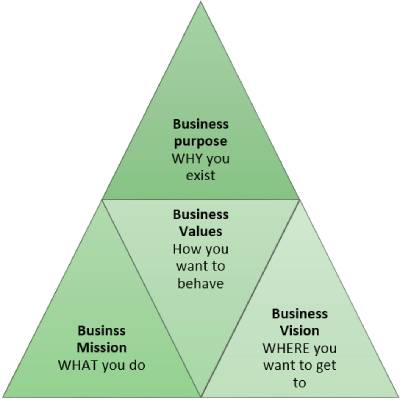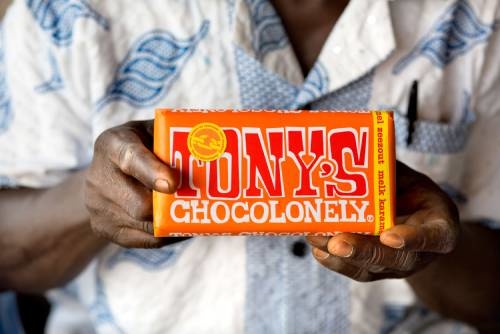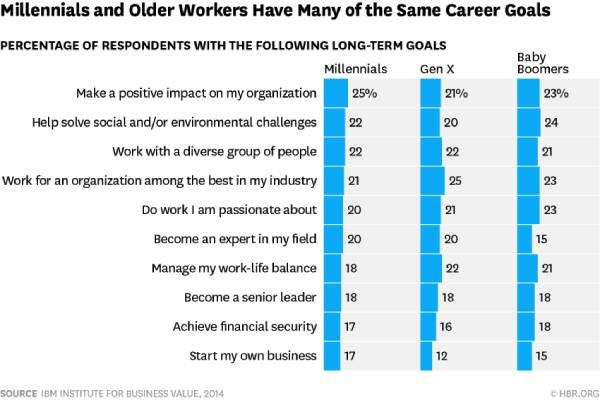Shaping Your Business With Brand Purpose
Slave labor is very much real and part of our everyday life. Every time you go to the supermarket, there is a good chance that you bought a couple of products that are produced by what we call modern slavery. Modern slavery is the severe exploitation of other people for personal or commercial gain.
A good example is the chocolate industry. Tony’s Chocolonely explains this best:

While lots of people ask politicians and NGO’s to address this issue, the founders of Tony’s Chocolonely took this responsibility by making this problem their purpose. Their mission is to make 100% slave free the norm in the world of chocolate production.
If you want to know more about Tony’s Chocolonely and how they want to eliminate slavery within the world of chocolate, we had Ynzo van Zanten as a guest on ‘Impact Talks’ telling their story. He is the Chief Evangelist at Tony’s Chocolonely. You can also read about it in our blog 10 Things I’ve Learned from a Chocolate Evangelist as a Social Entrepreneur.
Impact Talks is a podcast with influential speakers from all over the world. We are dedicated to encouraging growth and innovation within startups and scale-ups.
Purpose-Driven Brands
While Tony’s brand purpose addresses a moral issue, not everyone can pursue one of this size. However, many great companies are purpose-led. Nike wants to bring inspiration and innovation to every athlete in the world. Google tries to organize the world’s information and make it universally accessible and useful.
A brand purpose allows brands to occupy a meaningful place in their customers’ minds. Even though profit and purpose aren’t mutually exclusive, a clear purpose can deliver commercial success.
‘Companies that stand for something bigger than just what they sell are usually more successful, because of this meaningful place in their customers’ minds’. – Bill Theofilou, Managing Director at Accenture Strategy
So, What is Brand Purpose?
The definition of a brand purpose is “a higher-order reason for a brand to exist than just making a profit”. It connects with consumers on a more emotional level, such as values and norms.
While a brand purpose is similar to a social purpose, there are differences. Take Coca-Cola’s brand purpose for example: “Refresh the world. Make a difference.”. It does not account for their social, cultural, or environmental goals.
If we compare that to Tesla’s purpose: “To accelerate the world’s transition to sustainable transport.”, we see a clear difference. Tesla has an environmental goal, while Coca-Cola does not clearly state it has one. If you ask me, the purpose statements including social, cultural, or environmental goals, are way better than those that do not.
A perfect example is this Dutch article that states that if even Shell uses a purpose, then it must be another empty business jargon. While it’s often mixed with CSR, they are not the same. Therefore, Shell is perfectly capable of having and pursuing a purpose. However, the credibility and power of their purpose is a different story when it includes their environmental impact.
One of the big misconceptions about a business’s purpose is that it’s about good initiatives, sustainability, or making the world a better place (it often does, however). A purpose should be visible in all elements of the business and manifest itself in everything a brand does.
In contrast, CSR often runs parallel to the business. For example, a supermarket can give free gaming consoles to the local youth center as a token of goodwill. Or less related to their business, they can donate a ton of money to a good cause.
Both cases, however, do not say anything meaningful about their product. Their purpose is probably something down the line of: “making fresh and healthy food available for everyone”. Giving away free products or donating money does not reflect their purpose.
Differences Between a Brand Purpose and Business Mission/Vision/Values
It is easy to confuse a business’s purpose with mission, vision, or values. However, it differs greatly. Below here are the differences:
- Purpose is WHY you exist: The reason for being for a brand or business than just ‘making a profit’ or ‘driving shareholder value’.
- Vision is WHERE you want to get to: This is what you want the brand or business to be (e.g. ‘We want to be the world’s most sustainable provider of X by 2025′).
- Mission is WHAT you do: This is what you do or the core of the business.
- Values are HOW you want to behave to get there: What is the organizational culture of the company? Which types of behavior do we tolerate, and which do we not condone?

It is imperative to get all of this right since they will help you make decisions. Tony’s Chocolonely for example, bases all of its decision on the question: “Will this decision help us make the chocolate industry 100% slave free?”
It is easy to lose track of your long term goals. By asking yourself, “Will this decision help me achieve my purpose, vision, and mission?”, you are sure to work your way to whatever it is you’re chasing.
Brand Purpose & Social Entrepreneurship
This is where brand purpose and social entrepreneurs meet. By developing, funding, and implementing solutions to social, cultural, or environmental issues, you are sure to have followers.
We, as humans, are currently living in a way that is far from sustainable, taking about 1.5 times as many resources than we can replenish. Luckily, the number of people that want a more sustainable and more ethical world is rising. It is not surprising that entrepreneurs addressing these issues are on the rise.
Social entrepreneurs focus beyond simply pursuing profit and mainly focus on the positive impact the business makes on society – whether social, cultural, or environmental. If you want to get started with social entrepreneurship, these lessons will get you a long way.
Companies that follow sustainable business practices/principles are well on their way to making the world a better place for us. However, putting sustainable business practices at the heart of your business will maximize impact. Therefore, social entrepreneurs should take time to develop their purpose, which will help them grow their business.
Get Free Marketing from a Social Brand Purpose
Tony’s Chocolonely does not do paid advertising. Their marketing is based on word-of-mouth communication. Moreover, their strategy is working so well they can slowly take over the American market.
The beauty of it is that Tony’s Chocolonely did not enter the American market to make more money, but because it was the only way to disrupt the international chocolate industry and to pursue their purpose: “100% slave-free chocolate”.

A message like this resonates with their customers, who, in turn will spread the message freely. This shows that having a social brand purpose can give you free marketing and help you pursue growth.
Purpose Attracts Talent
According to research done by Deloitte, many millennials express little loyalty to their current employers and have one foot out the door. Meaning they are planning their near-term exits. This leaves us with the question: “How can we attract and keep talent in the organization?”
“Millennials are less impressed by the sheer scale of a business, its age, or the general buzz that surrounds it. Based on a stereotypical view of Millennials, the profile or “positive energy” around a business might be thought of as being highly important to them.” ~ The 2016 Deloitte Millennial Survey
One part of this ‘positive energy’ is a company’s contribution to society. This and lots of other surveys show that millennials prioritize the sense of purpose rather than growth or profit maximization.
“Millenials look for work that fuels their sense of purpose and makes them feel important.” ~ The 2016 Deloitte Millennial Survey
This Harvard Business Review article shows that not only millennials are purpose-hungry, but boomers and Gen X prefer to work for purpose-driven brands.

This means that having a brand purpose that is bigger than pursuing growth or profit, will attract young talents. This will lead to more growth, profit, and above all, a better chance at achieving your business’s purpose.
Developing Your Brand Purpose
There are two possibilities. You either want to start a company and are searching for a brand purpose, or you have an existing company in need of a brand purpose.
If you are starting a company:
- Firstly, you have to find your passion. I know this can be extremely difficult. Luckily, we have a blog that can help you find your passion.
- Secondly, you have to look at what you are good at. By doing something in line with your skills and expertise, you have a higher chance of succeeding.
- Third, think about what the world needs. If you are very passionate about something and extremely good at it, but nobody needs your product or service, it won’t be easy to find customers.

The sweet spot lies within a combination of these 3. Combining these 3 will keep your motivation high because you are chasing your passion while offering a high-quality product or service to potential customers.
Think of why your consumers want to support what you do and why you do what you do. This way, you will get consumers that follow not only your product or service but also your purpose.
Now that you have established your purpose, you are ready to start. This guide will help you on your journey.
If you are an existing company:
It is extremely risky to stick a purpose on top of an already established brand. Especially if you do it for the sake of having one, people will see right through you!
However, with the help of a specialist or by following the steps described by Afdhel Aziz, existing brands can discover their purpose.
- Dive-deep into the history of the company, how it was founded, and by whom, and its reason for coming to existence was in the first place.
- Follow the same 3 steps as when starting a company described above.
- Ask why employees are proud to work for you. This often reveals the real value they see in your company and their work.
- Ask why customers choose your brand. This can reveal why they choose to follow your purpose/brand and not someone else’s.
Brand Purpose Examples
What’s better to give you inspiration than real-world examples? Here are 5 businesses with a purpose:
- Eliciting Joy (Coca-Cola) – exists to inspire moments of happiness.
- Enabling Connection (Facebook) – exists to stay connected with friends and family, to discover what’s going on in the world, and to share and express what matters to them.
- Inspiring Exploration (The North Face) – exists to provide the best gear for exploration and new experiences.
- Evoking Pride (Mercedes-Benz) – exists to epitomize a lifetime of achievement.
- Impacting Society (Tony’s Chocolonely) – exists to create 100% slave-free chocolate.
Changing the World With Your Brand Purpose
Starting an impact startup can change the world. Tony’s Chocolonely is only one of the many successful examples. There are countless possibilities to make the world a better place and make a dime while doing it. Just keep in mind what your purpose is.
Your goal should not be to make as much profit or to reap in as many dividends for the stakeholders as possible. A true purpose-driven brand taps into the true needs of its consumers and fulfills a goal that is bigger than money!
One important thing to remember is that you can make money whilst also making the world a better place! You do not need to be an NGO or government to change the way we do things.
If you are a startup with a social brand purpose, we, Startup Funding Event, are here to help. We organize events for impact startups, where we give you a stage and connect you with potential funders.
As you join this event as a startup, you’ll have real opportunities to create a positive impact on human lives. At Startup Funding Event, we bring together our international volunteering team to run an inspiring event that can help other impactful startups and companies grow. Once you win, you’ll be part of this organization by sharing impact and innovation with the support of our entire community.
You can sign up on our website:
https://startupfundingevent.com/startup-application/
Community

Congratulations on reaching the end!
Check out our podcast Impact Talks, where you can listen to high-profile experts from various backgrounds!
Join our Facebook Group Community with over 4,700 entrepreneurs, innovators, and creators by Startup Funding Event, where you get access to free live training, daily Q&As, design templates to get your business started, and support from the SFE team. Join here!




Leave a Reply
Want to join the discussion?Feel free to contribute!